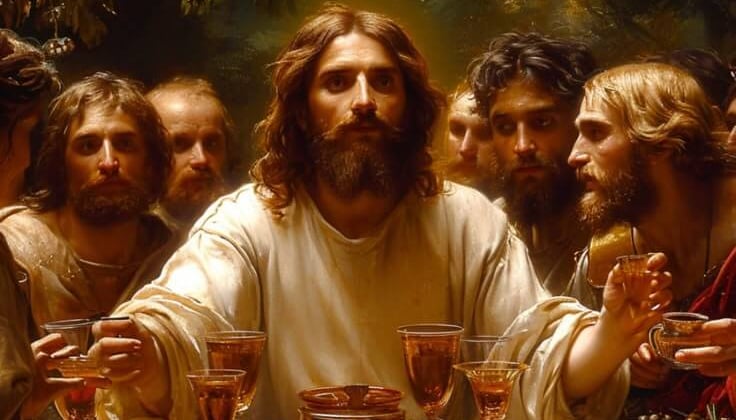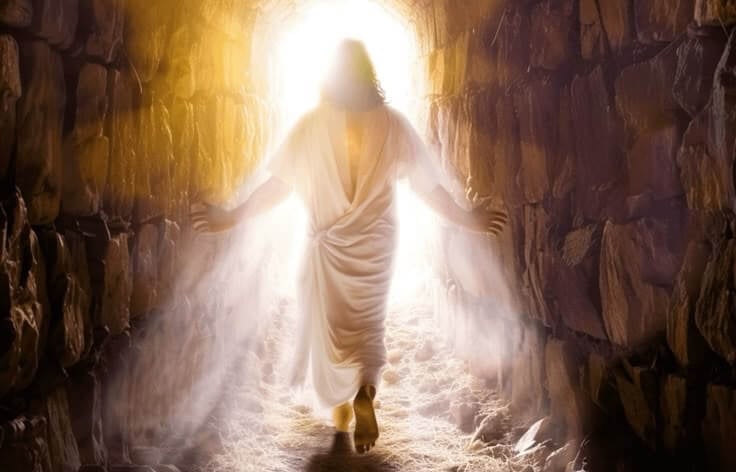The History of Easter: From Passover to Christian Celebration
How did Easter evolve from Passover? Uncover the rich history and cultural influences that shaped this important Christian holiday.


Introduction: A Tale of Two Celebrations
Easter. It's a holiday that's got layers, you know? Like an onion, but way more meaningful. We're talking about a celebration that's deeply rooted in both Jewish tradition and Christian faith. It's a fascinating journey from the ancient Passover to the Christian celebration we know today. Let's take a closer look at how it all unfolded.
The Passover: A Story of Deliverance
Let's rewind to the Old Testament. Passover, or Pesach in Hebrew, is a Jewish holiday that commemorates the Israelites' liberation from slavery in ancient Egypt. It's a story of God's deliverance, a night when God "passed over" the houses of the Israelites, sparing their firstborn sons from death. As Exodus 12:13 says, "And the blood shall be to you for a token upon the houses where ye are: and when I see the blood, I will pass over you, and the plague shall not be upon you to destroy you, when I smite the land of Egypt." This event is a cornerstone of Jewish faith, a reminder of God's faithfulness and power.
Jesus and the Passover
Fast forward to the New Testament. Jesus, a devout Jew, celebrated Passover with his disciples. The Last Supper, the meal Jesus shared with his disciples before his crucifixion, was a Passover seder. It was during this meal that Jesus instituted the sacrament of communion, connecting the Passover meal to his own sacrifice. As Matthew 26:26-28 recounts, "And as they were eating, Jesus took bread, and blessed it, and brake it, and gave it to the disciples, and said, Take, eat; this is my body. And he took the cup, and gave thanks, and gave it to them, saying, Drink ye all of it; For this is my blood of the new testament, which is shed for many for the remission of sins."


Source: Google Image
The Resurrection: A New Passover
For Christians, Easter is the celebration of Jesus' resurrection, the ultimate act of deliverance. Just as God delivered the Israelites from slavery, Jesus' resurrection delivers us from sin and death. It's a new Passover, a new exodus. As 1 Corinthians 5:7-8 explains, "Purge out therefore the old leaven, that ye may be a new lump, as ye are unleavened. For even Christ our passover is sacrificed for us: Therefore let us keep the feast, not with old leaven, neither with the leaven of malice and wickedness; but with the unleavened bread of sincerity and truth."
The Evolution of Easter
Over time, the Christian celebration of Easter began to diverge from the Jewish observance of Passover. Early Christians, many of whom were Jewish, initially celebrated Easter in conjunction with Passover. However, as Christianity spread among Gentiles, the celebration took on its own distinct characteristics.
The Council of Nicaea: Setting the Date
One of the key moments in the history of Easter was the Council of Nicaea in 325 AD. This council established a uniform date for Easter, setting it as the first Sunday after the first full moon following the vernal equinox. This decision helped to solidify Easter as a distinct Christian holiday, separate from Passover.
In 2025, Easter will be celebrated on Sunday, April 20th.
Easter Traditions: Blending Old and New
Today, Easter traditions vary across different Christian denominations and cultures. Some traditions, like the sharing of eggs, have roots in pre-Christian spring festivals, while others, like the observance of Good Friday and Easter Sunday, are distinctly Christian. To understand more about modern Easter traditions and their significance, you can read more in this article:
Easter 2025: Date, Origins, and Significance of this Holy Holiday
Conclusion: A Rich Tapestry of Faith
The history of Easter is a rich tapestry of faith, tradition, and cultural influences. It's a story that connects us to our spiritual roots, reminding us of God's faithfulness and the hope we have through Jesus Christ.
Frequently asked questions
What is the connection between Passover and Easter?
Easter has its roots in the Jewish Passover, as the Last Supper of Jesus was a Passover meal, and Christians see Jesus' resurrection as a new Passover, a deliverance from sin.
How did Easter evolve from Passover?
While early Christians celebrated Easter in conjunction with Passover, the celebration gradually diverged as Christianity spread among Gentiles, eventually becoming a distinct Christian holiday.
What was the significance of the Council of Nicaea in relation to Easter?
The Council of Nicaea in 325 AD established a uniform date for Easter, setting it as the first Sunday after the first full moon following the vernal equinox, which helped to separate it from Passover.
Why is the Passover important to understand the history of Easter?
Understanding Passover provides context for Jesus' Last Supper and the Christian understanding of Jesus' sacrifice as a new form of deliverance, similar to the Israelites' deliverance from Egypt.
How does the Bible connect the Passover to the Christian understanding of Easter?
The New Testament, particularly in passages like 1 Corinthians 5:7-8, connects Jesus' sacrifice to the Passover lamb, portraying Jesus as "Christ our passover," highlighting the theme of deliverance.
What are some of the traditions that blend old and new in the celebration of Easter?
Some Easter traditions, like the sharing of eggs, have roots in pre-Christian spring festivals, while others, like Good Friday and Easter Sunday observances, are distinctly Christian.
